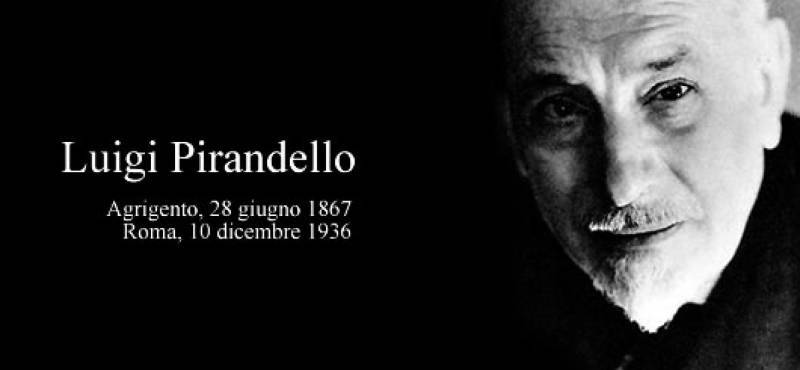Inspired by Pirandello: Characters in Search of a Country
NYU's Casa Italiana Zerilli-Marimò hosted, for the second consecutive year, The Literary Mews, NYU's own festival within the 2016 PEN World Voices Festival, a literary event that presents the work of writers from all over the world. The night's program featured a conversation with the Albanian-born Italian writer Ron Kubati, Characters in Search of a Country, a theatrical performance by Kairos Italy Theater's YoungKIT, inspired by Luigi Pirandello's Six Characters in Search of an Author, and the festival's closing panel “What's Your Muse,” featuring four renowned international authors – Cristina Rivera Garza, Ron Kubati, Glenn Patterson and Beate Rothmaier.
I-Italy had a chance to discuss the theater piece with the company. Written and directed by Laura Caparrotti, Characters in Search of a Country, portrays characters played by Aileen Lanni, Mario Merone, Lorenzo Possanza and Maria DeCotis who are Syrian immigrants in search of a country where they can tell and live their stories. Using Pirandello's words, in Italian, English and other languages, KIT presents a theater piece that reflects upon the contemporary problems of migration. “It was incredible to discover how perfect the words of Pirandello are for the situation,” Laura Caparotti explained to us, “Of course I had to cut and choose only some parts, yet it seems to be written for us and for what I want to say with the performance.”
“I was in Syros, Greece, working with the international group of directors I belong to, the World Wide Lab, and some of us were working on a piece on immigration,” Laura continued, “It was summer and Greece, Italy and Turkey were filled with bodies, dead and alive, from Syria especially. It was unbearable to hear, every single day, the number of how many people had died. It is still unbearable. Then, there, at the local Pirandello Society, someone told me about a Six Characters adaptation where the characters come from the sea. It made me think and I didn't stop until I decided to try to talk about everything it was happening in Europe using the words of Pirandello.
I wanted to have a gate, which is very similar to many other gates from the past; the gate symbolizes an entrance, a border, a line dividing the good from the bad... A wall! The characters want to enter and they try to convince the director and the company to listen to them. At the end, they are sent away and the borders are closed. What is amazing is how much the situation in Europe has changed from when we started up to now. I believe that the more we develop the piece, the more material we'll have to add.”
“My character is a young boy whose name is Sami,” Lorenzo Possanza, an actor with KIT hailing from Rome had to say this about his character. “Sami travels from Syria to Greece to find a better future, indeed his dream is to go to Germany and study there, get a job and bring his whole family back to Europe. He is very positive and with a lot of energy, he is aware of the problems and difficulties ahead of him but his passion for his dreams are stronger and he knows that.
I believe Sami and I can relate very well, I personally left my country to come to the US and had to make sacrifices, facing difficulties and obstacles to pursue my dream. On top of that, I have done this with positive attitude and energy. I enjoy this reinterpretation of Pirandello’s work, how the characters in search of an author become the immigrants in search of a country, especially with the current situation in Europe in which immigrants deprived of everything are forced to leave their countries in search of a better future and they are ready to fight to get into Europe as the Characters are ready to fight to show their Drama.”
Mario Merone, from Naples, plays both a Syrian refuge and his father, “They both try to be accepted by someone who has the power to give them a new life. But this acceptance goes through moments of fear, despair, pain and sometimes even of non-compliance. I feel very close to this character because since I was a child I had to fight to be heard and accepted and to be able to express my ideas without the fear of being laughed at. This interpretation is interesting because underlines the difficulty of understanding between human beings, the fear of what we do not know which leads us to categorize others as someone who can be dangerous for ourselves just because different from us.”
Aileen Lanni, from the Bronx, is “portraying the mother figure in Pirandello's work. Much of my inspiration for her was pulled from the many, harrowing refugee accounts I researched. In my research I also came to find that she is somewhat akin to the mater dolorosa figure. I find it really interesting how much Pirandello's work carries over to present day. There are so many elements that are relatable, especially to the current refugee situation - that urgent need to tell one's story firsthand so that others might understand and aid but being mocked, tormented or made fun of.”
“Laura keeps calling my character Donald Trump,” Maria DeCotis said about her portrayal of a company member, “It's always interesting to play the character I perceive to be the "villain." My character has no patience for the others (who play immigrants from Syria). She sees them as a wash of the same thing. She groups them all together. She takes no time to listen to their individual stories because she has already decided in her mind that they are all bad people who are taking something from her.
I grew up in Georgia where I think some of Donald Trump's terminology can be very contagious and toxic. My grandparents were immigrants from Italy. It's difficult to say how I relate to a person like my character, as I see no similarities between our beliefs and ideology. But as an actor, we are constantly asked to reevaluate our method of communication depending on the audience we are addressing. We are also asked to see a story from every possible angle down to the minutest detail of interpretation because it gives us more information on why a character behaves a certain way.
I think about the hate that Donald Trump perpetuates with bigotry and fear-based rhetoric. My character thinks she can speak for the characters better than they can speak for themselves and it enrages me. Beginning development on a character with anger is not the most useful way to start, but it is valid in the creation of this role. It's hard to not let it take control, especially when my anger and passion ignite my creativity in service of social change. I know Laura has this same passion and has used it in devising this piece.”
The show, which is in continuous development, will be presented again on June 20, 21 and 23 at the Davenport Theatre at 8pm. For more info:www.kitheater.com





































i-Italy
Facebook
Google+
This work may not be reproduced, in whole or in part, without prior written permission.
Questo lavoro non può essere riprodotto, in tutto o in parte, senza permesso scritto.